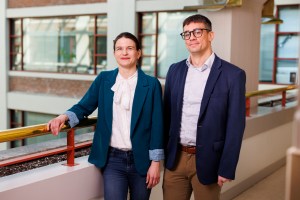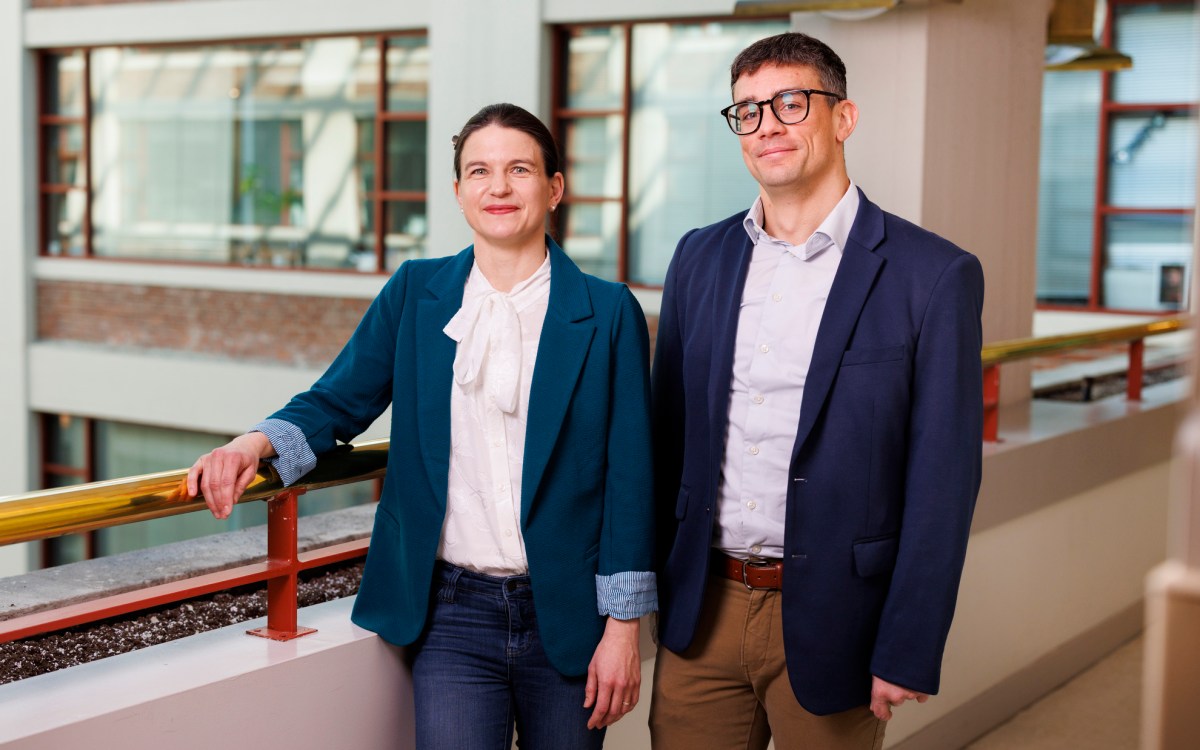
iStock by Getty Images
Psychological, not physical factors linked to long COVID
Study finds distress before COVID-19 infection increases risk of long COVID by 45%
Psychological distress, including depression, anxiety, worry, perceived stress, and loneliness, before COVID-19 infection was associated with an increased risk of long COVID, according to researchers at Harvard T.H. Chan School of Public Health. The increased risk was independent of smoking, asthma, and other health behaviors or physical health conditions.
“We were surprised by how strongly psychological distress before a COVID-19 infection was associated with an increased risk of long COVID,” said Siwen Wang, a researcher in the Department of Nutrition at Harvard Chan School who led the study. “Distress was more strongly associated with developing long COVID than physical health risk factors such as obesity, asthma, and hypertension.”
The study was published online Wednesday in JAMA Psychiatry.
According to the U.S. Centers for Disease Control, about 20 percent of American adults who have had COVID-19 have developed long COVID, which is defined as experiencing COVID-19-related symptoms, such as fatigue, brain fog, or respiratory, heart, neurological, or digestive symptoms, for longer than four weeks after infection. Severe COVID-19 illness increases the risk of long COVID, although people with milder COVID-19 cases can also develop long COVID. Symptoms, which can be debilitating, could last months or years, and little is known about which traits are linked to developing long COVID.
Mental health is known to affect the outcomes of some diseases. Depression and other mental illnesses have been associated with greater risk of more severe COVID-19 including the risk of hospitalization, which is a risk factor for long COVID. In other acute respiratory tract infections, such as flu or common cold, mental health conditions are associated with greater severity and longer duration of symptoms. Previous studies have also suggested that distress is associated with chronic symptoms following Lyme disease and in chronic fatigue syndrome and fibromyalgia, which have symptoms similar to those of long COVID.
To determine the effects of psychological distress before COVID-19 infection on developing long COVID, Wang and her colleagues enrolled more than 54,000 people in April 2020. At the beginning of the study, the researchers asked the participants about their psychological distress. Over the following year, more than 3,000 participants contracted COVID-19, and the researchers asked participants about their COVID-19 symptoms and symptom duration.
After analyzing the responses and comparing those who developed long COVID to those who did not, the researchers determined that distress before COVID-19 infection, including depression, anxiety, worry, perceived stress, and loneliness, was associated with a 32 percent to 46 percent increased risk of long COVID. These types of psychological distress were also associated with 15 percent to 51 percent greater risk of daily life impairment due to long COVID.
“To the best of our knowledge, this is the first prospective study to show that a wide range of social and psychological factors are risk factors for long COVID and daily life impairment due to long COVID,” said Andrea Roberts, senior research scientist in the Department of Environmental Health at Harvard Chan School and senior author of the JAMA Psychiatry paper. “We need to consider psychological health in addition to physical health as risk factors of long COVID-19. These results also reinforce the need to increase public awareness of the importance of mental health and to get mental health care for people who need it, including increasing the supply of mental health clinicians and improving access to care.”
Other Harvard Chan co-authors include Luwei Quan, Jorge Chavarro, Natalie Slopen, Laura Kubzansky, Karestan Koenen, and Marc Weisskopf.
This research was supported by the National Institutes of Health (3R01HD094725-02S1, U01HL145386, R24ES028521, U01 CA176726, R01 CA67262, and R01 HD057368); the Dean’s Fund for Scientific Advancement Acceleration Award from the Harvard T. H. Chan School of Public Health; and the Massachusetts Consortium on Pathogen Readiness Evergrande COVID-19 Response Fund Award, and the Veterans’ Administration (IIR 20-076, INV 20-099, IIR 20-101).





